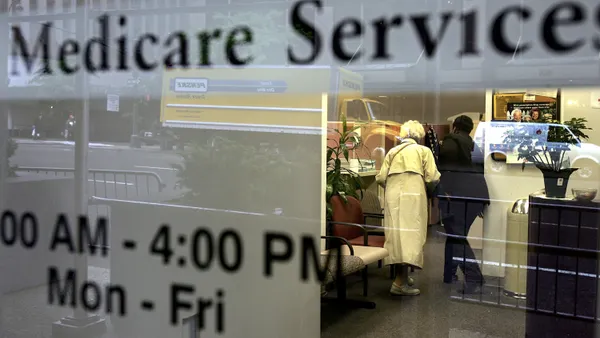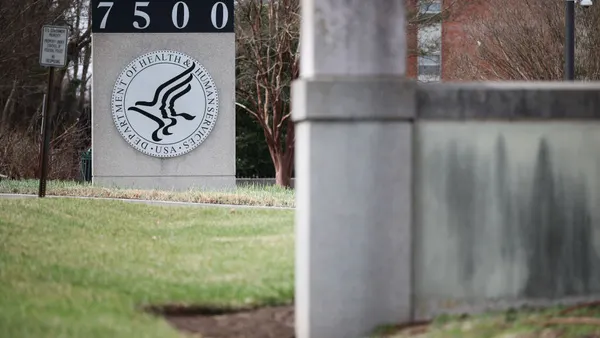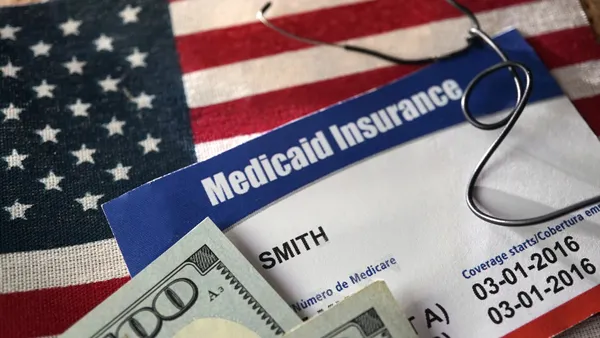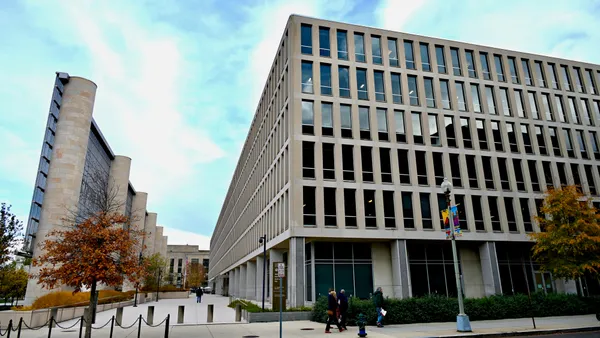Dive Brief:
- The Supreme Court will allow the National Institutes of Health to cut millions of dollars allocated for research funds as the Trump administration continues its effort to bar federal funds from supporting diversity, equity and inclusion.
- The court ruled 5-4 on Thursday to allow the administration to cancel $783 million in previously allocated grants, reversing a lower court’s order blocking the cuts.
- However, the justices left in place a portion of the lower court’s ruling that threw out the original guidance documents outlining the policies, raising questions about whether the administration will be able to withhold research dollars for similar reasons moving forward.
Dive Insight:
The lawsuit centered around the Trump administration’s move this winter to cut funding for NIH grants that the administration deemed were inconsistent with the president’s agenda on diversity, equity and inclusion. Canceled studies included investigations into HIV prevention, vaccine hesitancy and gender identity, according to the complaint.
Researchers, unions and associations, including the American Public Health Association, sued to challenge the administration’s decision to cancel the funds, warning the cuts would imperil medical research and irreversibly harm scientific progress.
In June, U.S. District Judge William Young, an appointee of former President Reagan, ruled with the plaintiffs. He blocked the cuts, reasoning the government had “moved too fast and broke things,” including the Administrative Procedure Act. The judge further scolded the administration for what he said was government-sanctioned “racial discrimination.”
The 1st U.S. Circuit Court of Appeals reaffirmed Young’s ruling in July.
In August, an independent report from the Government Accountability Office also said the cuts were likely illegal, because the president had failed to provide notice before delaying or blocking congressionally directed spending.
Still, the Justice Department filed an emergency appeal to the Supreme Court asking the justices to overturn the decision. The state argued that the high court had already upheld Trump’s right to make education cuts on similar grounds. The attorneys said plaintiffs’ complaints should have been filed instead in the U.S. Court of Federal Claims, as the court had instructed previously.
Justice Neil Gorsuch agreed with the state, writing in his opinion that “lower court judges may sometimes disagree with this Court’s decisions, but they are never free to defy them.”
Gorsuch was joined by Justices Clarence Thomas, Samuel Alito, Brett Kavanaugh and Amy Coney Barrett in the majority. Chief Justice John Roberts and the court’s three liberal judges dissented.
Justice Ketanji Brown Jackson, who has penned several lengthy dissents this term, wrote a 21-page fiery dissent, criticizing the majority opinion and its willingness to hear yet another emergency appeal from the Trump administration.
In the first 20 weeks of Trump’s second term, the administration has asked the Supreme Court to hear an emergency appeal 19 times, according to a June analysis from Georgetown law professor Steve Vladeck. That’s the same number of appeals the Biden administration made over four years. In almost every case, the court has sided with the administration.
Jackson accused the court of conducting “Calvinball jurisprudence” in dealing with Trump — a reference to the Calvin and Hobbes comic in which the rules of play are constantly changing, typically at the expense of Calvin’s sidekick, Hobbes.
“Calvinball has only one rule: There are no fixed rules,” Jackson wrote. “We seem to have two: that one, and this Administration always wins.”
The legal team for the plaintiffs released a statement condemning the decision last week, calling it “a significant setback for public health.”
Still, they found some bright spots in the decision.
“It is important to note that the Supreme Court declined to stay the District Court’s conclusion that the NIH’s directives were unreasonable and unlawful. This means that NIH cannot terminate any research studies based on these unlawful directives,” the attorneys said.













